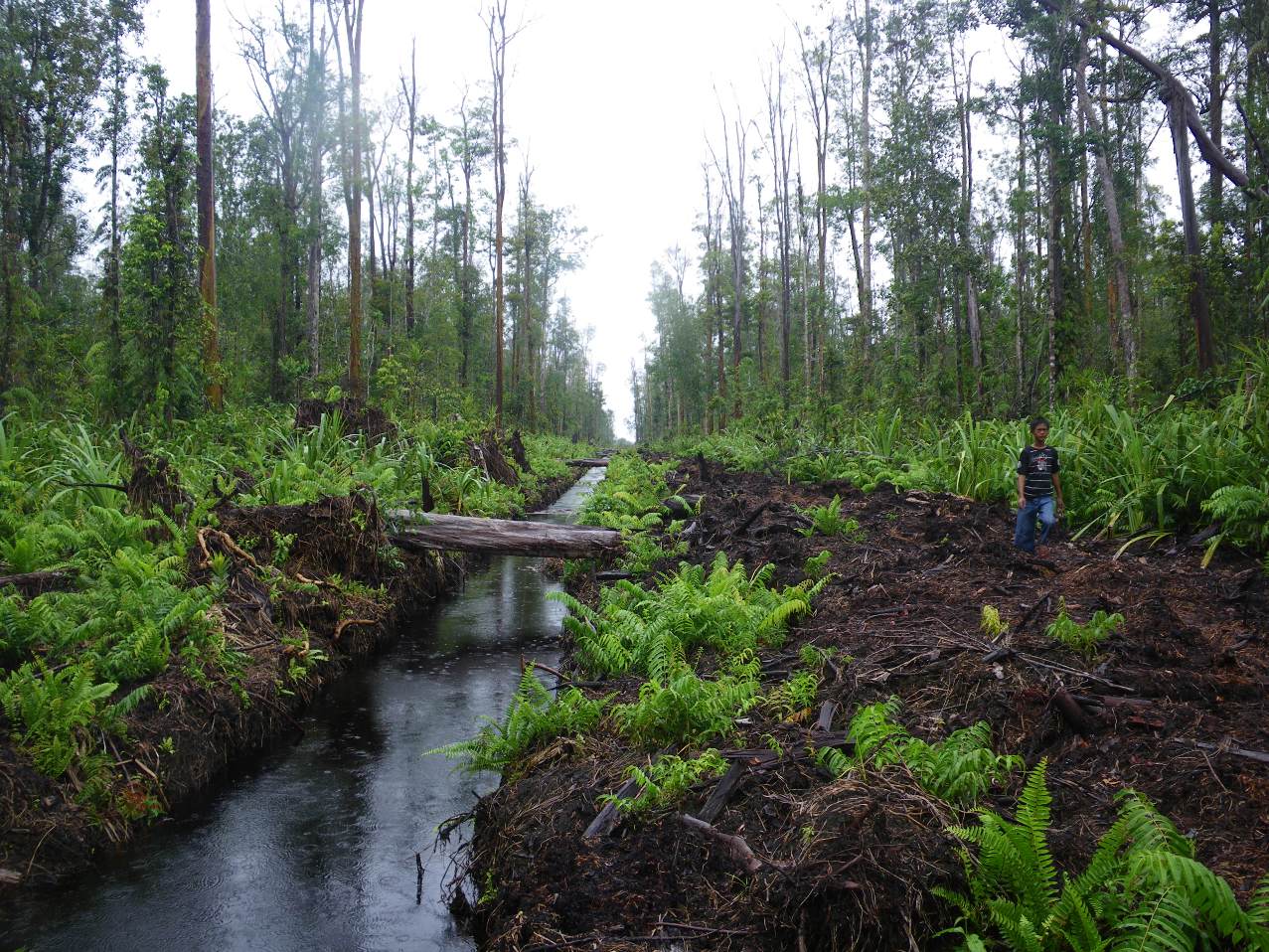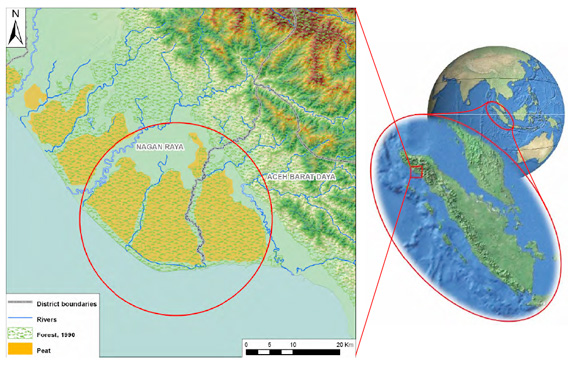- Kallista Alam was originally convicted of using fire to clear land by a district court. The latest decision upholds that ruling, which the company challenged.
- The government is prosecuting four more of the biggest firms in a case that is unprecedented both for the scale of the official response and the severity of the punishments that have been handed down.
- The environment and forestry minister welcomed the decision and promised to follow up.
Indonesia’s Supreme Court has rejected an appeal from oil palm developer PT Kallista Alam, which had been ordered to pay a staggering 366 billion rupiah ($26 million) in fines and reparations for cut-and-burning forest in the Tripa peat swamp region.
The ruling puts to rest a three-year legal process that began when the Environment Ministry (since merged with the Forestry Ministry) brought charges against the company in a district court in Aceh province and that continued through Kallista Alam’s appeals of both that court’s decision against it and the Banda Aceh High Court’s upholding of the verdict.
Tripa has been severely damaged by rogue plantation operators, and the Environment and Forestry Ministry is prosecuting four more of the biggest firms in a case that is unprecedented both for the scale of the official response and the severity of the punishments that have been handed down.
The Attorney General’s office is also pressing criminal charges, and in July last year two Kallista Alam managers were sentenced to prison time, though the sentences have yet to be enforced. According to a statement issued yesterday by the Coalition Team for the Protection of the Tripa Peat Swamp, “Implementation of these sentences is believed to have been pending the appeal of the civil case with the Supreme Court, and presumably must now be enforced with the recent rejection of that appeal.”
Tripa is one of the last remaining strongholds of the critically endangered Sumatran orangutan (Pongo abelii) and is also part of the Leuser Ecosystem, the only place in the world where the unique Sumatran varieties of the rhino, tiger, elephant and orangutan all still live in the wild.
The Aceh provincial government established a protected zone in Kallista’s former concession earlier this year.


Environment and Forestry Ministry Siti Nurbaya praised the ruling. “We really appreciate the court’s decision,” she said on Saturday.
The ruling, she added, comes at an opportune time, as forest fires burn across Sumatra and Kalimantan and blanket the region with haze.
“Besides the material ruling, this was needed to fill the people with a sense of justice,” Siti said. “I think we are very happy. I will follow up this development by executing the ruling.”
Muhammad Nur, executive director of the Aceh branch of the Indonesian Forum for the Environment (Walhi), an NGO, also noted the timing of the decision.
“May this become a lesson for other naughty plantation companies in Aceh as well as North Sumatra, Jambi, Riau, South Sumatra and Borneo and other areas for them not to burn land,” he said, adding that regional governments as well as the central government should sue companies that burn land.
Rudi Putra, a leading Acehnese conservationist and Founder of the Leuser Conservation Forum (FKL), attributed the verdict in part to the consistent attention the case, and the Leuser Ecosystem more generally, has received.
“This win would never have been possible without the national and international public support the case has had from people who wouldn’t accept this heinous destruction, who have monitored the legal process from the start and who have kept up the pressure for a just and transparent result,” he said. “We want to thank everyone who made this positive and extremely welcome final decision possible.”

T.M Zulfikar of Yayasan Ekosistem Lestari, an NGO, also applauded the verdict.
“We will also be monitoring closely what happens next to ensure the fines and reparations are indeed paid and carried out in full, including the restoration of the affected concession to its former condition,” said Zulfikar, who brought an earlier legal challenge against Kallista Alam’s permit.
Farwiza Farhan of Forest, Nature and Environment Aceh (HAkA), an NGO, also welcomed the ruling, but she pointed out the threats still facing Leuser due to Aceh’s controversial new spatial plan, which the province’s parliament passed last year but which critics say is illegal because it never received central government approval and doesn’t mention the Leuser Ecosystem, a nationally imposed strategic area.
The plan, Farwiza said, “effectively legalizes numerous illegal roads, many of which have already been cut through the forests, and it opens up vast areas for potential new, timber, mining and plantation concessions.
“Despite the win against PT Kallista Alam in Tripa, we still have a much more desperate and urgent fight ahead of us to protect Aceh’s forests and people from another, major, and totally avoidable emerging disaster.”
CITATION: Chik Rini and Indra Nugraha. “Kasasi Ditolak, Kalista Alam Harus Bayar Rp366 Miliar, Menteri Siti: Penuhi Rasa Keadilan.” Mongabay-Indonesia. 13 September 2015.







